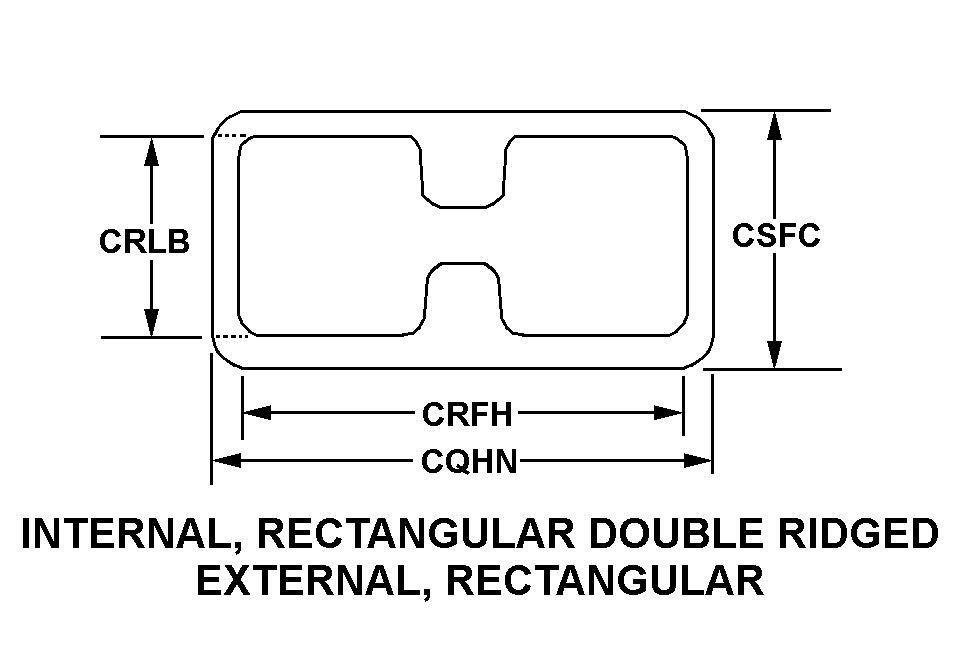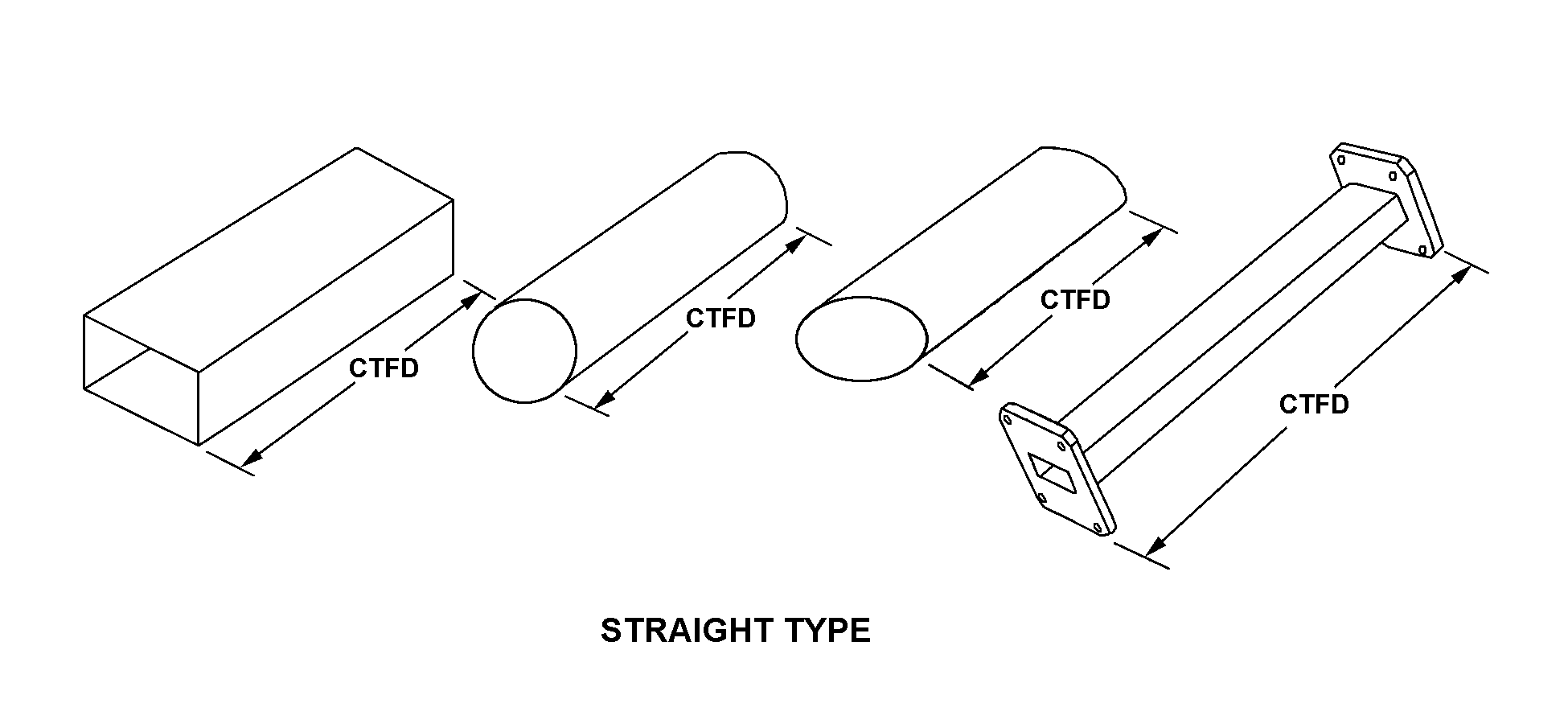5985012392629
Price Quote Get an up to date pricing and availability quote for this product. Order online or over the phone.
Quality Commitment
Serving our customers with quality and safety first.
- AS9120 Certified
- Audited supply chain
- ITAR Registered
- DDTC Registered
- HAZMAT Certified
- Customer service objectives
- Every product 100% inspected

5985-01-239-2629 Specification Set by the OEM (see RNCC code 3)
internal, rectangular double ridged external, rectangular
an/ALQ-172V2 ecm pod
seamless single tubing segment
2
0.720in. all flanges
0.321in. all flanges
1.375in. all flanges
1.375in. all flanges
0.250in. all flanges
0.144in. all flanges all connection facilities and 0.147in. all flanges all connection facilities
1.25
45.0 pounds per square inch gage
0.730in.
0.720in.
0.321in.
0.421in.
4 unthreaded hole all flanges all connection facilities
contact, double ridge type all flanges
10.500in.
flexible single tubing segment
copper alloy single tubing segment
any acceptable all tubing segment and flange outside surfaces
straight type
antennas, waveguides, and related equipment
Cross Reference Parts Part numbers that meet the specification outlined on this page and set by the OEM
Identification Item Identification Guide (IIG) and Item Name Code (INC)


Definition Definition of approved item name (AIN): "WAVEGUIDE ASSEMBLY"
An item consisting of one or more definite lengths of straight or formed, flexible or rigid, prefabricated hollow tubing of conductive material. The tubing has a predetermined cross section and is designed to guide or conduct high frequency electromagnetic energy through its interior. One or more ends are terminated. May include common mounting of a switch, wave guide, a dummy load, electrical and other components such as waveguide section, cable terminal chamber and the like. Excludes coupler, rotary, radio frequency; coupler, directional; adapter, waveguide; and tuner, waveguide.
Packaging & Dimensions Packaging instructions, special markings, and approx. weight/dims
Packing shall be accomplished in accordance with table c.ii for the packing level specified. closure, sealing and reinforcement shall be in accordance with applicable specification for shipping container.
Packing shall be accomplished in accordance with table c.ii for the packing level specified. closure, sealing and reinforcement shall be in accordance with the appropriate shipping container specification.
Items or packages that require packing for acceptance by the carrier shall be packed in exterior type shipping containers in a manner that will ensure safe transportation at the lowest rate to the point of delivery and shall meet, as a minimum, the requirements of the following rules and regulations, as applicable to the mode(s) of transportation to be utilized: (a) postal regulations, (b) department of transportation regulations, (c) civil air regulations, (d) uniform freight classification rules, (e) national motor freight classification rules, (f) american truckers' association rules, (g) other applicable carriers' rules, (h) military air regulations for dangerous materials. consolidation of shipments. all exterior packs of 1.5 cubic feet or less having no single dimension (length, width, height) exceeding 40 inches (and when the total number of such containers in any individual shipment exceeds 25), shall be consolidated, using flat pallets, box pallets, or containers as the consolidating media. dangerous goods shall be prepared for shipment according to applicable department of transportation (dot) regulations and international regulations in effect at time of shipment. shipment by parcel post must comply with postal regulations.
Options can be exercised as to specific method of preservation or dod approved packaging materials to be used. however, basic preservation method shall be retained, supplemental data shall be complied with, and unit package dimensions shall not be increased by more than one inch. equal or better protection shall be given the item and there shall be no increase in the package cost.
No special marking.
Packaging Codes
OPI: Optional Procedure Indicator Code. A one position alpha code that indicates the allowable deviations from the prescribed requirements.
SPI No.: Special packaging instructions number.
LVL A/B/C: Indicates the type of shipping container required for level A, B, or C maximum packing protection.
SPC Mkg: A two position code that identifies the special markings applied to the container, which is part of the total pack to protect the contained item during preservation, packing, storage, transit and removal from the pack.
5985-01-239-2629 Material Hazmat, Precious Metals, Criticality, Enviroment, and ESD
Indicates there is no information in the hmirs. The nsn is in a fsc in table ii of fed std 313 and a msds may be required by the user. The requirement for a msds is dependent on a hazard determination of the supplier or the intended end use of item.
Item does not contain precious metal.
Represents items with no adp components
The item does not have a nuclear hardened feature or any other critical feature such as tolerance, fit restriction or application.
Identification Codes
HMIC: Hazardous Material Indicator Code. A one position code that identifies a hazardous item.
PMIC: Precious Metal Indicator Code. A one position code which identifies items that have precious metals as part of their content. precious metals are those metals generally considered to be uncommon, highly valuable, and relatively superior in certain properties such as resistance to corrosion and electrical conductivity.
ESD: Electrostatic Discharge. Indicates if an item is susceptible to electrostatic discharge or electromagnetic interference damage. electrostatic discharge damage occurs when an accumulation of static electricity generated by the relative motion or separation of materials is released to another item by direct contact. electromagnetic interference damage occurs when an item comes into proximity with an electrostatic or magnetic field.
ENAC: Enviromental Attribute Code. Identifies items with environmentally preferred characteristics.
CRITL: Criticality Indicator Code. Indicates an item is technically critical by tolerance, fit, application, nuclear hardness properties, or other characteristics.
Material Management Material categorization and source of supply
Defense logistics agency, enterprise business systems
Airborne electronic warfare equipment
Material Codes
SOS: Source of Supply. A three position code or routing identifier code (ric), which identifies the source of supply activity.
SMIC: Special Material Indicator Code. A two position code, which categorizes material on the basis of requirements for source or quality control, technical design or configuration control, procurement, stocking and issue control, special receipt, inspection, testing, storage, or handling.
MMAC: Material Management Aggregation Code. A two position code that identifies an item of supply to be managed by a specific activity manager.
MCC: Material Echelon Code. A two position code employed by the marine corps in classifying items into categories by materiel category and procurement echelon. the alphanumeric management code is in the first position and identifies the materiel category
IMC: Denotes wether items shall be subjected to integrated management under the defense supply agency or retained by the individual military service or other department of defense components for their management. Assigned by th activity responsible for item management coding.






